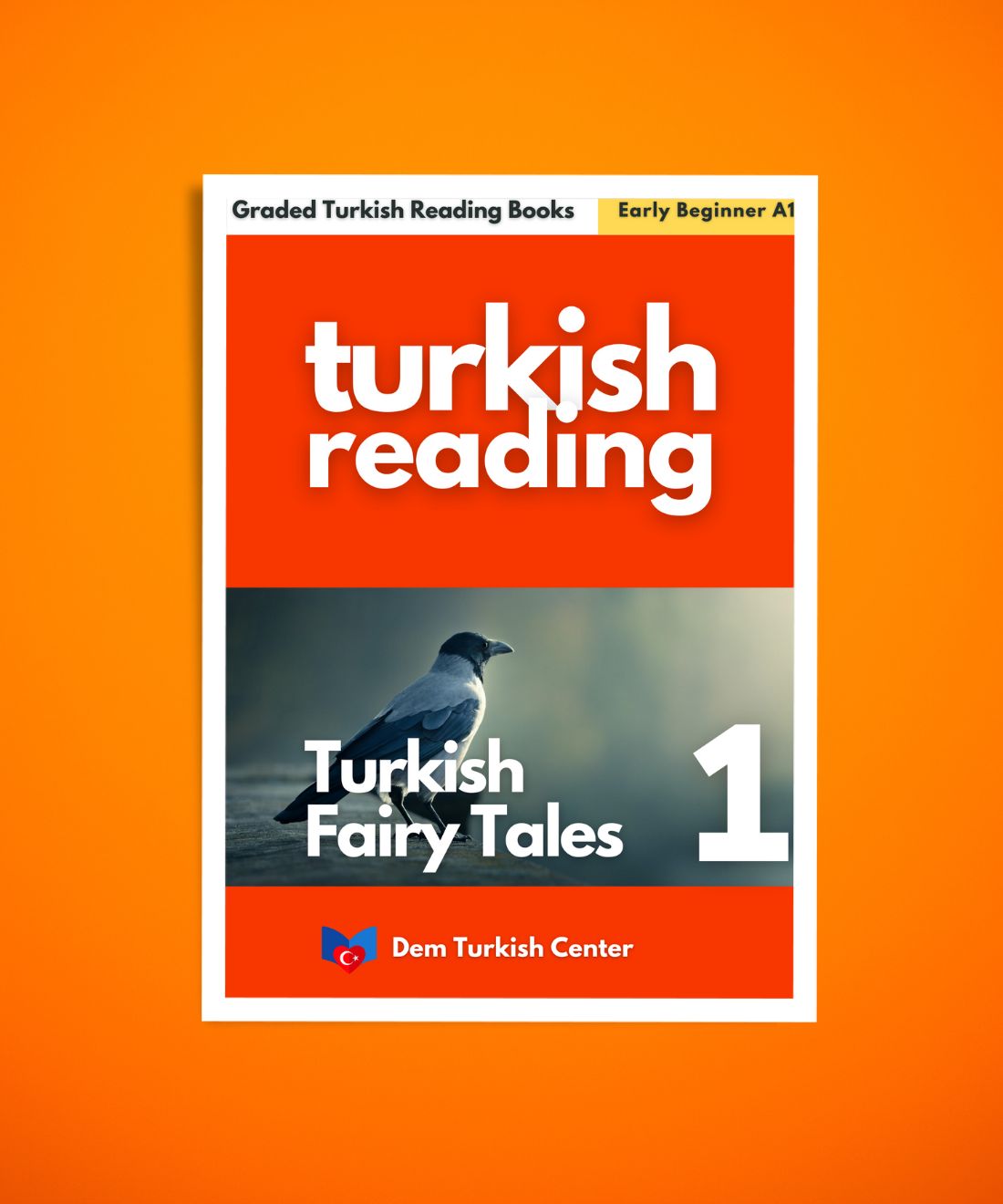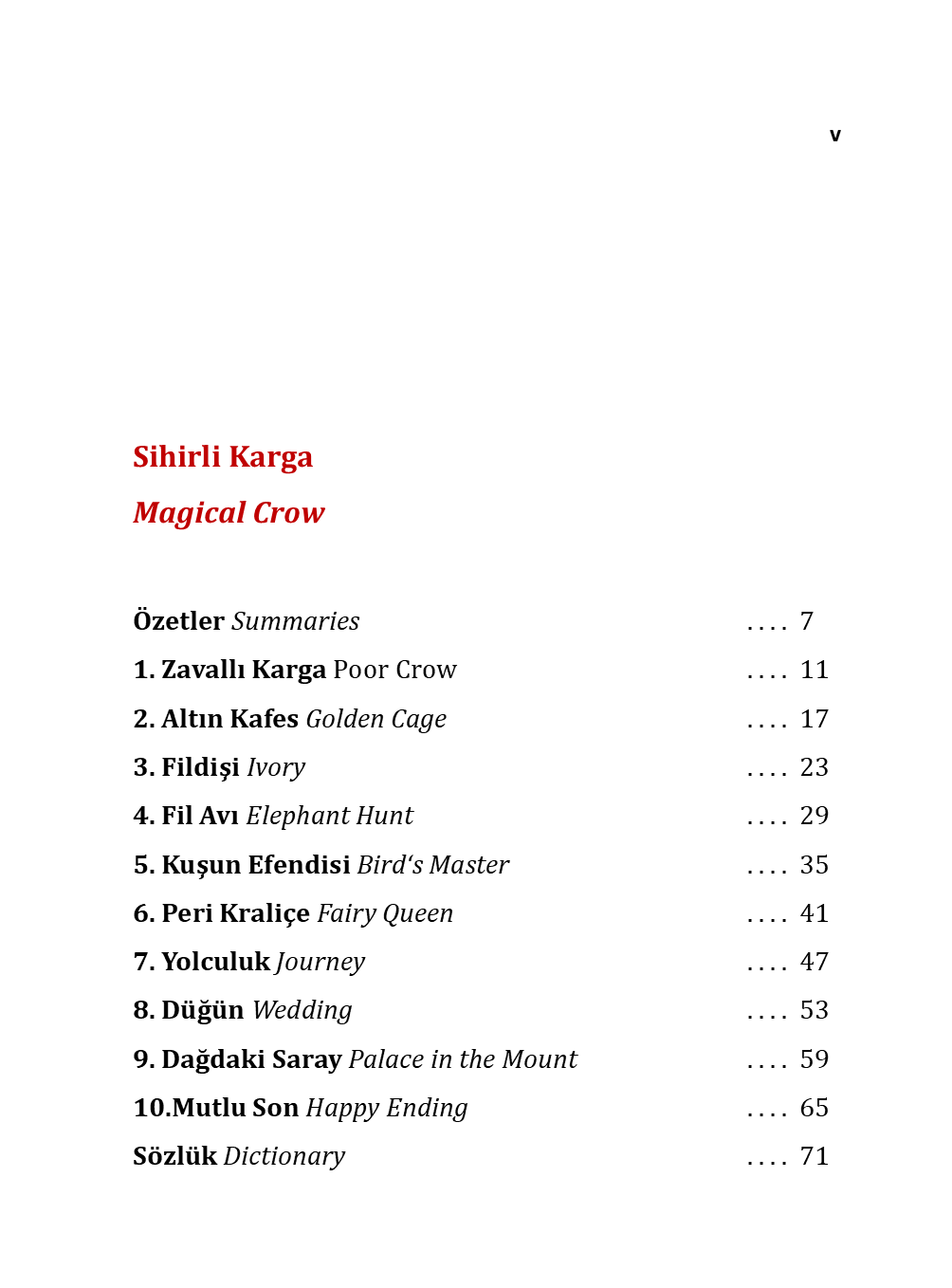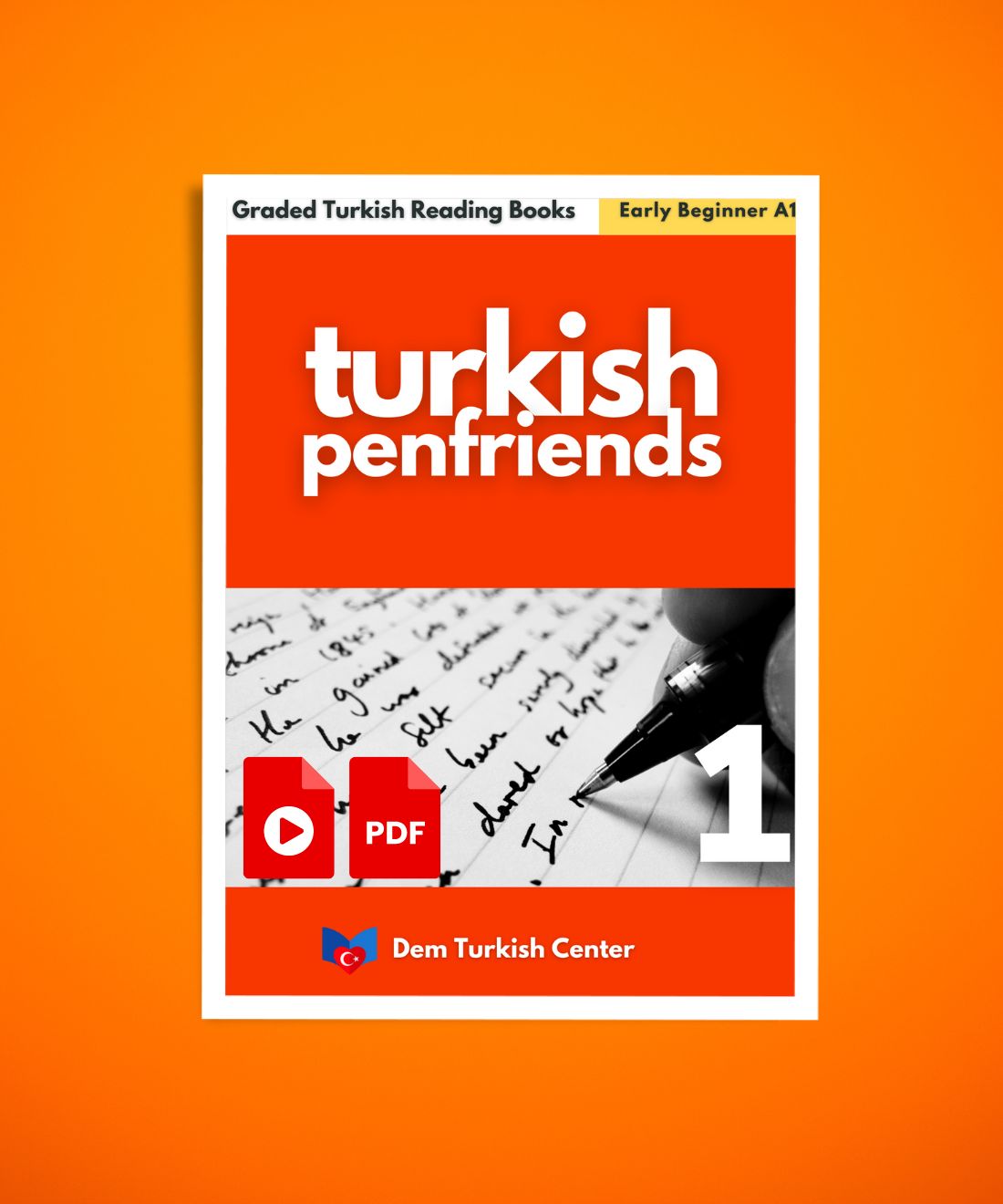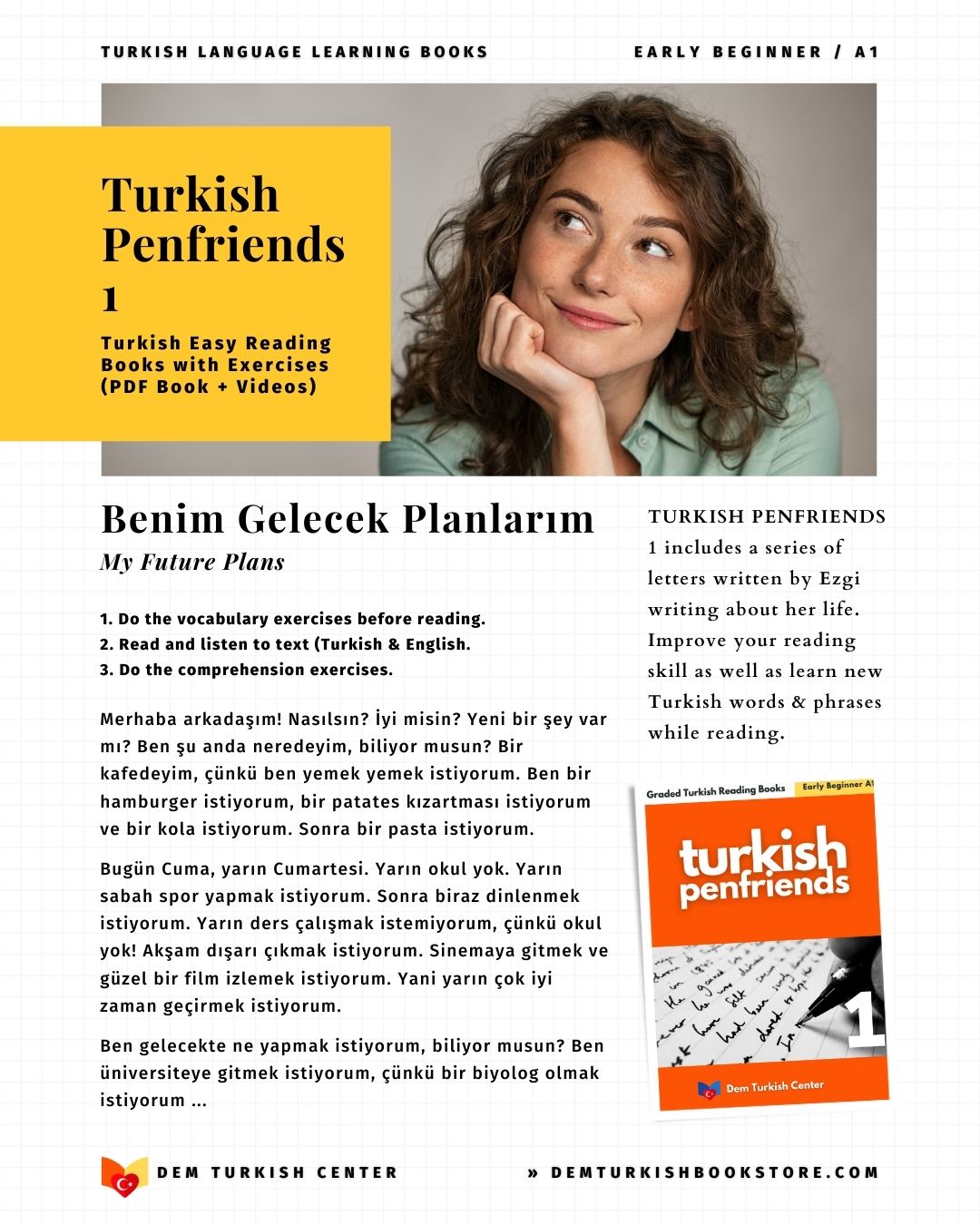
Why Becoming a Polyglot Is Easier Than You Think
The concept of becoming a polyglot — a person fluent in several languages — might appear to be an extraordinary feat limited to individuals with innate talent or an exceptional memory. However, the reality is that achieving polyglot status is much more attainable than most people believe.
With the proper mindset, effective resources, and the right strategies, anyone can learn multiple languages and enjoy the remarkable benefits it brings.
Learning Turkish language? Become a member and get the full access to the bookstore - for 1 year!
IS BECOMING A POLYGLOT EASIER THAN I THINK?
In this blog post, we’ll dive into why learning multiple languages is more straightforward than it seems and how you can begin your journey toward becoming a polyglot today.
1. The Power of Similarities Between Languages
A widespread misconception about learning multiple languages is the belief that you must start from square one each time you tackle a new one.
Although each language comes with its own set of challenges, mastering a second, third, or even fifth language is usually far easier than learning the first.
This is because acquiring your first new language equips you with foundational skills that streamline the process of learning additional ones.
For instance, if you already speak English and begin learning a second language like Spanish, you'll notice that many English and Spanish words share common roots, known as cognates.
Words like "animal," "hospital," and "idea" are nearly identical in both languages, making it easier to build your vocabulary quickly.
Likewise, when you study languages from the same family—such as Spanish, Italian, or French—your familiarity with one can significantly aid your understanding of the others due to their shared grammar rules and overlapping vocabulary.
Even if the languages you’re learning belong to entirely different language families — such as English and Turkish — you’ll still gain valuable skills that simplify the process of acquiring future languages.
These include the ability to adjust to diverse sentence structures and pronunciation patterns, which are crucial for mastering any language.
How to Start Your Polyglot Journey: A Step-by-Step Guide
2. Technology Makes Language Learning More Accessible
In the past, achieving polyglot status often meant attending formal language classes, spending extended time abroad, or purchasing costly textbooks. However, in today’s world, technology has transformed language learning, making it more accessible than ever.
Apps like Duolingo, Memrise, and Babbel provide convenient, bite-sized lessons that can be completed anytime, anywhere.
By incorporating gamification, these tools keep you motivated and engaged, ensuring that the learning process remains enjoyable and interactive.
In addition, platforms like YouTube, language exchange websites such as Tandem and HelloTalk, and language-learning podcasts provide free, high-quality resources for learners.
These tools allow you to listen to native speakers, practice your pronunciation, and participate in real conversations—all from the comfort of your home.
By making language learning more affordable, they also create countless opportunities for real-world practice and immersion.
How To Learn Vocabulary Quickly and Easily From Stories
3. The Myth of the "Language Learning Gene"
Many assume that being multilingual requires a special "language gene"—a rare, innate talent that only a select few possess. This misconception often discourages people from trying to learn a second language.
In truth, becoming a polyglot has less to do with genetic predisposition and more to do with cultivating the right habits and adopting a positive mindset.
No matter their age, background, or prior experience, anyone can learn a language, according to research. Consistency, practice, and an openness to making mistakes are crucial.
All of us acquired our first language as kids through exposure, repetition, and steady progress. The same holds true for learning other languages.
In actuality, adults have the advantage of cognitive maturity, which means that by employing tactical techniques like spaced repetition, immersion, and active recall, we may frequently acquire languages more quickly.
Best Polyglot Tips For Learning Languages
4. Language Learning Is a Skill, Not a Talent
Learning a language is a skill, not a natural ability. It gets better with practice, just like any other skill.
You will improve your comprehension of the vocabulary, grammar, and structure of your target language the more time you spend practicing it.
You'll eventually learn to think in the language, which will facilitate more organic communication.
Consistency is the secret to success. You may make great strides in language acquisition over time, even if you just have ten to fifteen minutes a day to devote to it.
Significant gains in language acquisition can be achieved with modest daily efforts. Similar to mastering a sport or learning to play an instrument, mastery comes from constant practice.
5. Multilingualism Improves Cognitive Abilities
Studies have shown that learning more than one language significantly affects cognitive function. Polyglots frequently have greater multitasking skills, improved memory, and improved problem-solving ability.
This is due to the brain's increased ability to manage numerous linguistic systems and move between different sets of rules.
Actually, it has been discovered that bilinguals and multilinguals have longer attention spans and stronger executive function—the mental processes that enable us to organize, plan, and finish activities.
Additionally, learning a language can help older persons postpone the onset of dementia and cognitive decline.
Polyglots are maintaining their mental acuity and agility far into old age by constantly pushing their brains to assimilate new information and employ various linguistic patterns.
6. The Emotional and Social Benefits of Being a Polyglot
Being multilingual offers many emotional and social advantages in addition to cognitive ones. By connecting with others from diverse cultural backgrounds, learning a new language broadens your perspective and improves your capacity for empathy.
You'll be able to have more in-depth discussions, comprehend other cultural backgrounds, and form connections that would not be possible otherwise.
Learning a language also boosts one's self-esteem. You'll feel empowered and accomplished as you make progress and start speaking your new language.
It is immensely satisfying to overcome obstacles and become fluent in a second language, and this sense of accomplishment extends to all facets of life.
7. It’s Never Too Late to Start
If you’ve been putting off learning a new language because you think it’s too late, think again!
Learning a language can begin at any age and is a lifetime endeavor.
Although children are better at learning native-like speech, adults frequently perform better than children in learning grammar and vocabulary because of their superior study habits and larger cognitive capacities.
So, whether you're 20 or 60, you can absolutely become a polyglot with the right approach.
It’s never too late to start learning and reaping the countless benefits that multilingualism brings.
Becoming a polyglot may seem like an unattainable goal, but in reality, it’s easier than you think. With the right tools, a commitment to consistent practice, and a positive mindset, anyone can learn multiple languages. Whether you’re starting with your second language or already juggling several, remember that language learning is a skill that gets easier the more you practice.
So, embrace the journey, make use of the wealth of resources available, and enjoy the cognitive, emotional, and social rewards of speaking multiple languages. The world is full of opportunities to connect, and being a polyglot opens the door to a wealth of experiences and relationships.
ARE YOU LEARNING TURKISH LANGUAGE?
Learn Turkish yourself with Dem Turkish Center!














